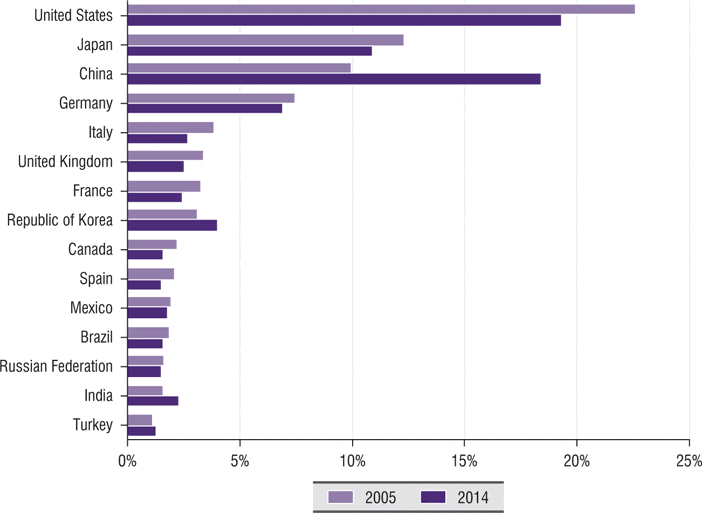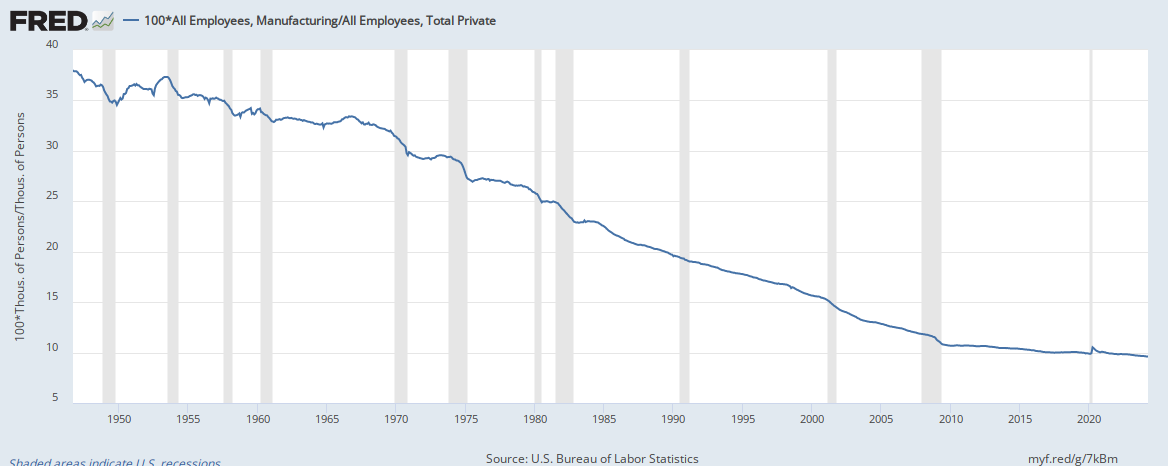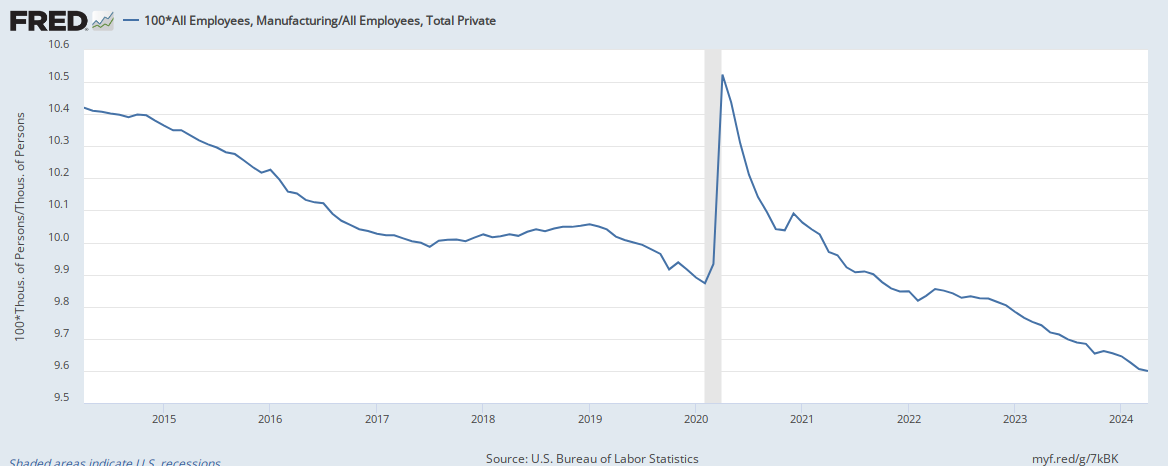IsaacNewton
Gold Member
- Jun 20, 2015
- 17,308
- 3,697
- 290
- Thread starter
- #21
The story though was about coal miners, though again their plight is a repeating of events that have happened in the past regarding various industries.
The problem with the economy becoming part of the 'global economy' is that now our businesses and labor have to compete against labor that gets paid 4 times less than in the US. The same with manufactured goods prices. Because of labor costs steel made in Korea costs less than it can be made for in the US so our factories lose business and shut down.
There are signs that labor in China is moving towards unions because they want much better wages and a safer work environment, things that are universal to human beings, so over time there may be a leveling of cost disparities and those jobs, or at least some of them, come back to the US.
But, the overall trend is that the sentiment among blue collar workers that the days of every generation advancing, making more money, having a better life than their parents IS changing to a more stagnant or plateau of lifestyle. And it isn't because of government policies it is because where US manufacturing once only competed on a large scale against other businesses in the US, it now competes with all business around the world where, again, labor costs are far lower. As noted above a natural trend. Similar to how Walmart has forced millions of mom and pop stores out of business because they can't get the volume discounts on goods that Walmart's bulk buying can.
The problem with the economy becoming part of the 'global economy' is that now our businesses and labor have to compete against labor that gets paid 4 times less than in the US. The same with manufactured goods prices. Because of labor costs steel made in Korea costs less than it can be made for in the US so our factories lose business and shut down.
There are signs that labor in China is moving towards unions because they want much better wages and a safer work environment, things that are universal to human beings, so over time there may be a leveling of cost disparities and those jobs, or at least some of them, come back to the US.
But, the overall trend is that the sentiment among blue collar workers that the days of every generation advancing, making more money, having a better life than their parents IS changing to a more stagnant or plateau of lifestyle. And it isn't because of government policies it is because where US manufacturing once only competed on a large scale against other businesses in the US, it now competes with all business around the world where, again, labor costs are far lower. As noted above a natural trend. Similar to how Walmart has forced millions of mom and pop stores out of business because they can't get the volume discounts on goods that Walmart's bulk buying can.









